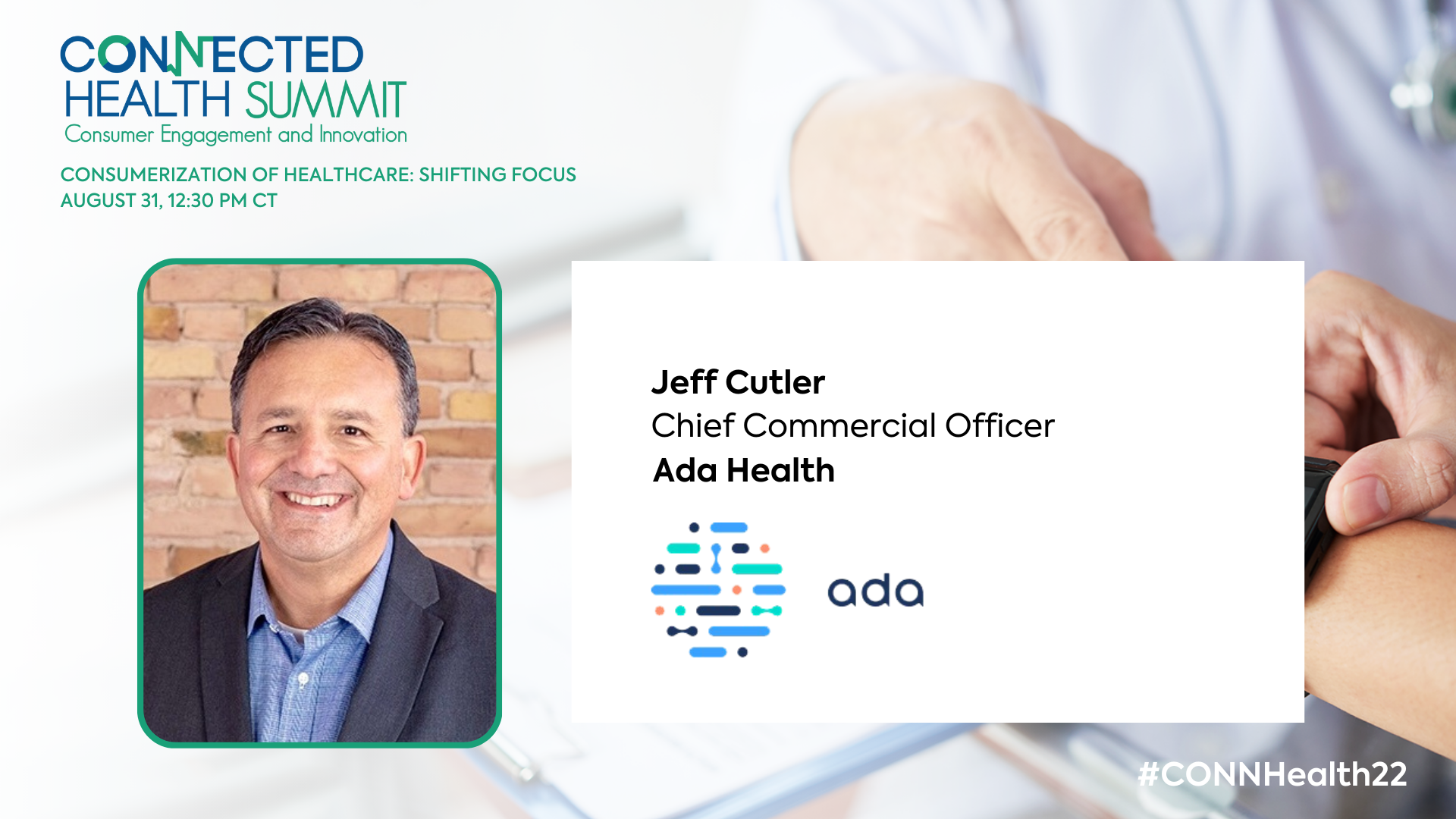Future of Healthcare Will Include Greater Patient Empowerment: Insights from Ada Health
 Parks Associates’ continues its ninth-annual Connected Health Summit: Consumer Engagement and Innovation with the virtual session, Who’s Paying for Healthcare? New Business Models, on Wednesday, August 31, from 11:00 AM to 1:30 PM CT. Jeff Cutler, Chief Commercial Officer, Ada Health will be featured on the interactive panel Consumerization of Healthcare: Shifting Focus at 12:30 PM CT, which addresses the shifting focus for health care providers and service providers to a more consumer centric view, where the patient has more insight and control into their own health. Prior to the session, Cutler provided insights on key trends impacting the connected health.
Parks Associates’ continues its ninth-annual Connected Health Summit: Consumer Engagement and Innovation with the virtual session, Who’s Paying for Healthcare? New Business Models, on Wednesday, August 31, from 11:00 AM to 1:30 PM CT. Jeff Cutler, Chief Commercial Officer, Ada Health will be featured on the interactive panel Consumerization of Healthcare: Shifting Focus at 12:30 PM CT, which addresses the shifting focus for health care providers and service providers to a more consumer centric view, where the patient has more insight and control into their own health. Prior to the session, Cutler provided insights on key trends impacting the connected health.
What do you consider to be one of the key trends impacting healthcare and the connected home?
The emergence of digital health is enabling far greater individual empowerment and promoting a proactive approach to healthcare. It’s becoming clear that encouraging ownership of personal healthcare journeys and an increased focus on preventative care are imperative to lifting the burden on healthcare systems around the world. People are already taking action by using health tools such as fitness trackers or smart devices that track sleep, exercise, stress levels, diet, as well as more advanced connected healthcare devices like Continuous Glucose Monitoring (CGM) and more. By monitoring such factors, users can see where there may be issues with their health, where there is room for improvement and, ultimately, maintain a healthy lifestyle and require less care.
The increasing popularity of these health tools is enabling patients to manage their health more effectively at home and – together with a trend of healthcare systems shifting towards value-based care models – could lead to significant savings of as much as $1.5 to $3 trillion for global healthcare systems, according to the McKinsey Global Institute. Ada is actively driving this trend of individual empowerment by providing trusted AI solutions that help people better understand their health, take more control of their health journey and easily navigate to the right care options from the comfort of their home.
How has recent consumer exposure to virtual care set new expectations for the healthcare ecosystem going forward?
Consumers are continuing to demand access to healthcare on their own terms. This means they want to have a seamless, convenient user experience to find and access appropriate care - just as they do with banking, travel and everything else.
This ongoing global move from ‘brick-and-mortar’ to digital first healthcare has ignited a trend towards prevention and value-based care models. Now, there is an expectation that healthcare systems not only support the treatment of sickness, but help people avoid sickness, as much as possible, and stay healthy in the long run.
How have consumer attitudes towards connected health solutions shifted in the last year?
Most consumers are familiar and comfortable with smartphone apps, including those available to track and record their health data, whether through their provider’s patient portal or using an activity tracker. As a result of this new state of connectivity and empowerment, patient care is dramatically evolving and patients are often connected throughout their entire care journey and treatment.
The overall market is growing at a rapid pace. One recent report forecasts growth in the Connected Health and Wellness Solutions Market at 19.4% CAGR per year to $104.8 billion by 2027. We’re seeing technology giants like Apple and Google hiring more on-staff clinical teams and developing their own digital health strategies. We’ve also seen companies like Amazon enter the market with its planned acquisition of One Medical. What’s more important than just the sheer increase in adoption of new technologies is the shift toward using connected devices to empower individuals to better understand their health, improve overall wellbeing and better manage chronic diseases.
The single most powerful factor in this growth is healthcare’s overarching shift towards patient-centric care, prevention, and value-based healthcare. As individuals actively seek to take more control over their own health and payment models move to reimburse providers for keeping their patients healthy instead of treating them when they are sick, the entire industry is giving individuals more control over their own health. This has naturally led to increased consumer product innovation, and individuals themselves are beginning to embrace personal technology as a way to stay healthy, as well as informed or entertained.
Sponsored by ADT Medical Alert, Alarm.com, EarlySense, Johnson Controls, Rapid Response Monitoring and Independa, Inc., Connected Health Summit provides industry players with in-depth analysis on the implications of the connected healthcare revolution – and the resulting consumerization of healthcare – for multiple industries.
To register for future Connected Health Summit sessions, visit www.connectedhealthsummit.com.
Next: Seniors are Embracing the Smart Technologies: Insights from Kalogon
Previous: New Opportunities Created by Connected Wellness Capabilities: Insights from Becklar
Comments
-
Be the first to leave a comment.
Post a Comment
Have a comment? Login or create an account to start a discussion.


